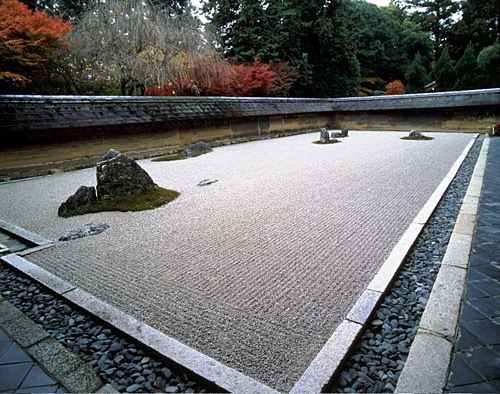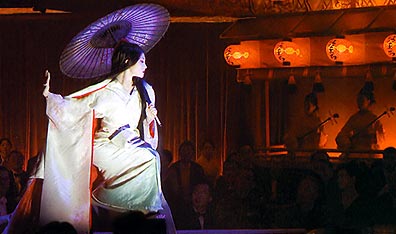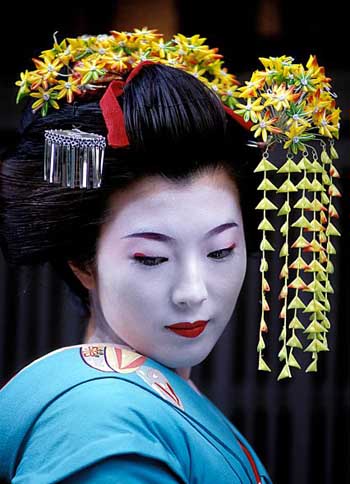Kyoto Japan offers travelers an interesting alternative in Tokyo. This beautiful city is a mixture of modern and ancient, with many reminders of the past of this city, and its place as the country's cultural heart. The main residence of the emperor of Japan in Kyoto was the eighth century until the nineteenth, when it was moved to the capital at the moment, Tokyo. There is much to see here, unlike other cities,
Kyoto suffer any damage during the Second World War.
Kyoto is a real life experience of the history and unique culture. To see everything, you will need to allow enough time to visit as many attractions in the 'as you can. If you are not able to visit for a short period of time, decide which countries you visit most, rather than trying to rush around to all.
Kyoto has many temples that offer a glimpse of a different nature of Japanese culture. They are also historically and architecturally interesting. You will see that many tourist attractions and recommended to the Kyoto temples of some kind.
There are two prominent religions are Buddhism and Shinto in Japan, everyone has their temples. The most impressive Buddhist temple in Kyoto is Kinkakuji Golden Pavilion, and one of the most popular tourist destinations in the city. The top two floors are wrapped in gold leaf, which is reflected in the pool below, which links the heavens above the earth below. The importance of the temple sacred to Buddhists come from inside, including the remains of Buddha life.
Near the Silver Pavilion, or Ginkakuji, is intended to be a complement to the Golden Temple, with a sheet covering the opposite of money, but this plan has been through. Silver Temple is much plainer than its neighbor, although it is a simple beauty. Two garden quiet here, one with a pool surrounded by rockery, where you have to move and experience the following changes in perspective, and another where the sand is carved in patterns reflective, creating a very relaxed atmosphere. Both are perfect antidotes to the stress of travel and jet lag.
Other Buddhist temple, is definitely worth a visit, Temple Clean water (Kiyomizudera). This world famous temple is being recognized by UNESCO because of its unique value, and will be named as a World Heritage site. It has stood since the eighth century, when it was founded by one of the oldest Buddhist sects in Japan. It appears that the city of Kyoto nearby hill, surrounded by forest. View of Kyoto from the terraced temple is breath taking! There is also a beautiful spring here fresh from the waters which are believed to have healing powers.
Two Zen temples that make interesting addition to the main ones are Buddhist. Celestial Dragon (Tenryuji) Temple was once the home of the emperor. Go aigo died when his house was in the temple in his memory. The name was chosen when a priest who was dozing near the dream of a dragon appears from the outside of the river. When he awoke, he concluded that it is a sign that the emperor's soul has been peace in death, and the temple should be placed there, to calm the troubled soul. The present building was built only about a century ago, after the eighth in a series of unfortunate fire has damaged various incarnations of the temple. However, there are gardens dating from the fourteenth century, and offers a quiet place to go for quiet time.
Second Temple, and World Heritage Site, known as the Peaceful Dragon Temple (Ryoanji). Zen Garden is the best example of this type, you will see. A carefully placed rocks and ridges of sand in patterns that are correctly oriented, creating a quiet haven within the walls of the plain of clay.

Shinto religion is more specific than the culture of Japanese Buddhist temples although this gives the impression of molding the minds of Japanese Buddhism. Two of the tours offer local Shinto shrines in Kyoto interesting. The first is Fushimi Inari, dedicated to the god of rice. If you visit, keep an eye out for lots of decorations in the form of foxes. These were the traditional messengers animals Inari. Holy is the beautiful and peaceful, especially in light of the night. The most striking feature of the temple at different gates or Tories striking about it.
More examples of this are the local Shinto gates in a second home. Heian Jung nineteenth-century temple that is assigned to two emperors of Japan Kammu and Komei. It was built to commemorate the hundred years since the founding of the city. At the end of October, Jidai Matsuri festival is held here. Thousands of people march to celebrate the day and Kyoto became the capital of Japan, despite the fact that it holds this honor.
There are also some interesting places to visit if you're less likely to temples.
Imperial Palace is a magnificent complex of buildings with beautiful gardens and interesting architectural features. The current palace was built in the eighteenth century, similar to Tenryuji, has suffered from many fires. Many emperors had chosen also to be married here in the Palace.
S class is one of the most
famous of Kyoto. Wonderful day can be spent wandering its charming streets, trying to spot geisha or maiko in costume. Geisha is an artist trained, and not as often thought, prostitutes. The area has been well preserved in many buildings dating from medieval times and has a great atmosphere more attractive to tourists.

















